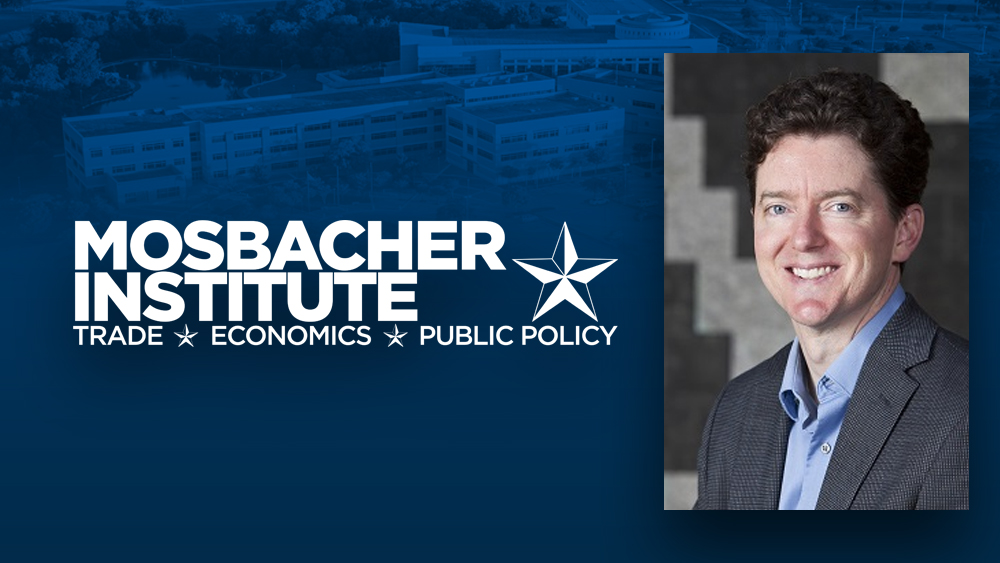
On Monday, February 1, the Mosbacher Institute hosted its inaugural Education Policy Workshop with Dr. Douglas Harris, a professor of economics at Tulane University and the director of the Education Research Alliance for New Orleans, speaking about the effects of the post-Katrina New Orleans school reforms on students’ academic outcomes. After the devastating effects of Hurricane Katrina, the New Orleans school system underwent major reforms which appear to have resulted in a significant boost to student achievement. However, Dr. Harris reminded the standing-room-only audience that correlation is not causation. His research has been looking at the available data to determine what impact the reforms actually have had.
Dr. Harris began his remarks with some background information on the public schools in New Orleans. Prior to Hurricane Katrina, the New Orleans school district was the second lowest performing school district in the second lowest performing state and riddled with corruption. After Katrina, several major reforms were implemented simultaneously. The district fired all of its teachers, allowed the teacher union contracts to expire, established charter schools throughout the city replacing traditional schools, and implemented a test-based accountability to determine whether schools remained open or were closed. The city also received a substantial increase in school funding.
Student achievement outcomes began to rise in 2007. The pattern has continued and presently the district is almost at the median for schools in Louisiana. Dr. Harris explored other variables that could potentially have effected student achievement outcomes. He examined whether demographic changes, such as an increase in higher-performing, wealthier students returning to the district, could have influenced the test results, but found the demographic breakdown remained almost completely unchanged between the pre-and-post hurricane years. He wondered if schools teaching to the test had caused the upward trend, but found no evidence to support the hypothesis. He also checked if the interim schools students attended while the city was evacuated had increased students’ skills enough to account for their increased performance. The impact of the variables mentioned were not significant after Dr. Harris used matched panel data, and matched pool data. He concluded that the increase in student achievement outcomes was the result of the reforms put in place.
The increase in student achievement outcomes resulting from the reforms implemented in New Orleans, despite the trauma the storm inflicted on students, are impressive and lead policy makers to ask if New Orleans’ results are generalizable. Dr. Harris stated there are several reasons why the results are not generalizable. First, the storm’s destruction of the city provided an unusual opportunity to start fresh. Second, the city implemented multiple major reforms at once, making it impossible to know which had the most significant effect. Third, the city received, and continues to receive, additional funding. Fourth, the schools were in such disarray that even moderate improvements could have a large impact on outcomes. Finally, the influx of charities and teachers offering help following the storm would be difficult to replicate. Dr. Harris concluded the conditions in New Orleans allowed it to be the best case scenario for the educational reforms.
The presentation was followed by a question and answer period during which audience members were able to ask questions of Dr. Harris. The event ended with a reception in the library’s rotunda, which allowed further conversation and reflection on the topic.
During his visit, Dr. Harris also spoke to a class on education policy about other research projects currently underway at the Education Research Alliance for New Orleans, attended a breakfast meeting with Bush School students pursuing concentrations in education policy, and met with several faculty members to discuss shared research interests. The Mosbacher Institute is thankful to Dr. Harris for taking the time to come to the Bush School to share his research and insights on such an interesting and important topic.


